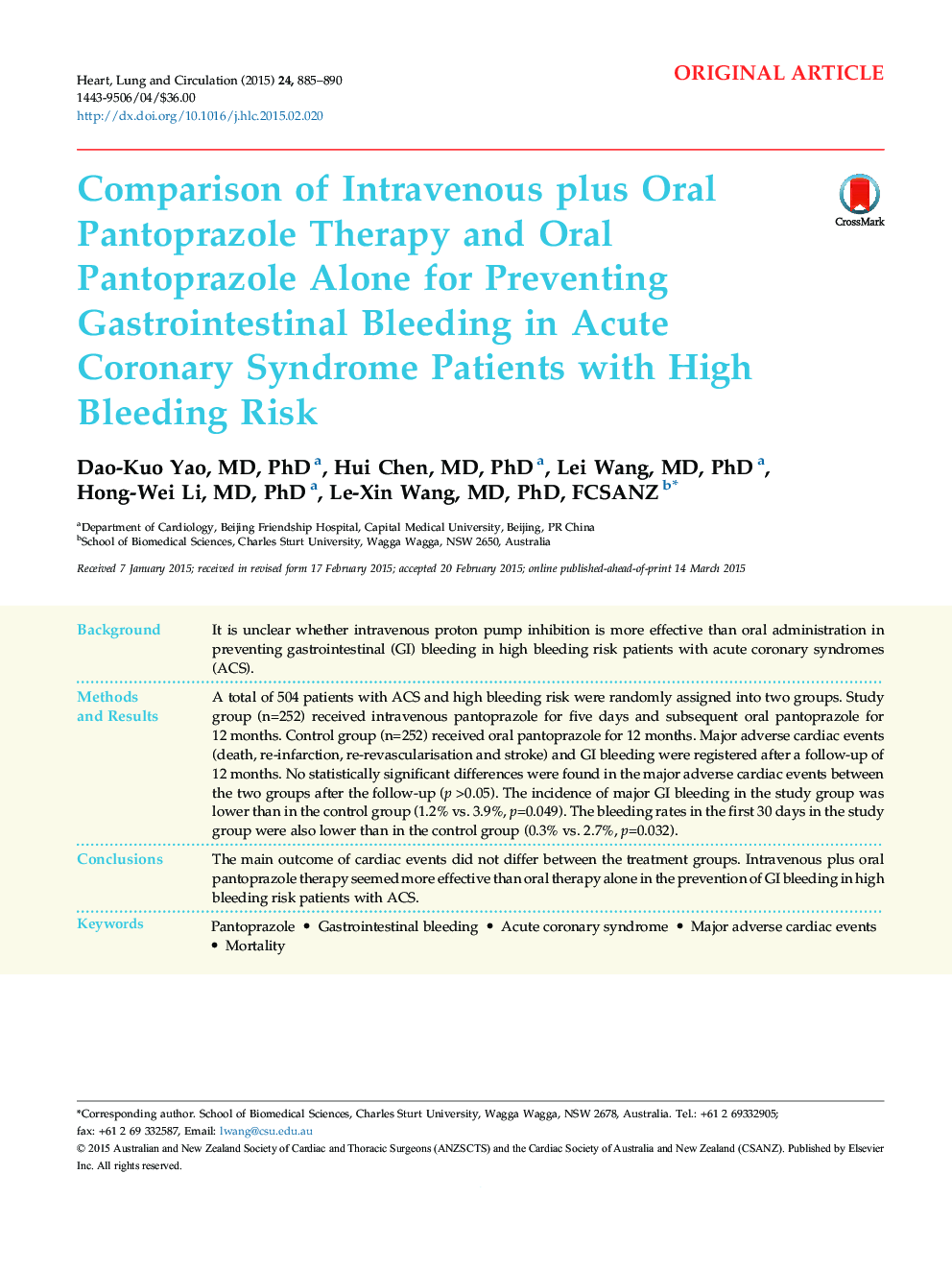| Article ID | Journal | Published Year | Pages | File Type |
|---|---|---|---|---|
| 2917822 | Heart, Lung and Circulation | 2015 | 6 Pages |
BackgroundIt is unclear whether intravenous proton pump inhibition is more effective than oral administration in preventing gastrointestinal (GI) bleeding in high bleeding risk patients with acute coronary syndromes (ACS).Methods and ResultsA total of 504 patients with ACS and high bleeding risk were randomly assigned into two groups. Study group (n=252) received intravenous pantoprazole for five days and subsequent oral pantoprazole for 12 months. Control group (n=252) received oral pantoprazole for 12 months. Major adverse cardiac events (death, re-infarction, re-revascularisation and stroke) and GI bleeding were registered after a follow-up of 12 months. No statistically significant differences were found in the major adverse cardiac events between the two groups after the follow-up (p >0.05). The incidence of major GI bleeding in the study group was lower than in the control group (1.2% vs. 3.9%, p=0.049). The bleeding rates in the first 30 days in the study group were also lower than in the control group (0.3% vs. 2.7%, p=0.032).ConclusionsThe main outcome of cardiac events did not differ between the treatment groups. Intravenous plus oral pantoprazole therapy seemed more effective than oral therapy alone in the prevention of GI bleeding in high bleeding risk patients with ACS.
